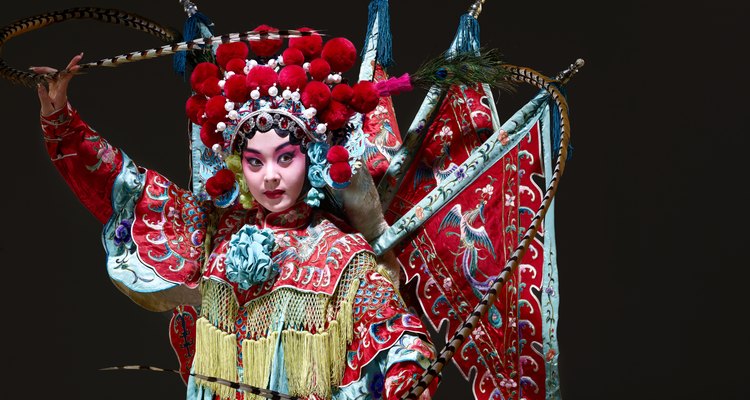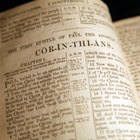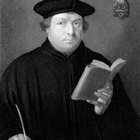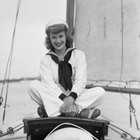
K-King Photography Media Co. Ltd/Digital Vision/Getty Images
Bertolt Brecht was one of the giants of the theater in the 20th century. A poet and playwright, Brecht was born in 1898 in Germany. Rejecting the standard theatrical drama, which focused on the emotional identification of the audience with the hero, Brecht wanted his audience to think about moral and social behavior. He referred to this as epic theater, the elevation of the moral, social or political message over the exploraton of character. Another of Brecht's principle theories is known as alienation, making the familiar seem foreign and thus compelling the audience to view it in a new light. With the situation, instead of character, as the main focus of his plays, Brecht's work had "attitude," a particular point of view that actors consistently displayed to the audience. Brechtian exercises for actors are intended to train them to convey attitude clearly and convincingly via the use of "gest," or gesture and facial expression.
Nursery Rhyme Exercise
One Brechtian exercise, taught by Drama Works in England, pairs up the class into partners who stand at the opposite ends of the room facing each other. Each person thinks of a well-known nursery rhyme, and, on a signal from the teacher, tries to communicate his rhyme to his partner, requiring each student to talk and listen at the same time. The result is chaos. Then students are told it is a life-or-death matter that they communicate their message. Usually, students increasingly incorporate gesture and pantomime into their attempts to be understood.
Statue Exercise
Students pair up and move around a grid at a fast pace. When the instructor claps his hands, each pair tries to make instant statues of the following: Romeo and Juliet; summer and winter; cat and mouse; hero and coward; song and dance; rich and poor; war and peace. Unconsciously, a student is likely to display an attitude, such as the rich being uncaring and the poor being figures of sympathy. Such poses represents "gest," the conveying of attitude or point of view through gesture.
Clarity Exercise
This exercise is to teach students that Brechtian acting is about clarity as well as attitude. The attitude of the play is paramount, and the actors must convey it so that audience members grasp it immediately and clearly. Student make contrasting tableaux of situations using gesture and facial expressions. One image is of war as a maker of heroes, and the contrasting image is of the waste of war. Another example is a group portrait illustrating one member as the most popular person of the group and another as the least popular. The class should discuss other elements that could be added to communicate the gest of the scene. The correct answer involves costumes and props. For example, shiny uniforms and medals could decorate the heroes of war, and rags and bloody bandages illustrate the waste of war.
Communicating Emotions
Students pair up to assume body positions and facial expressions that communicate love, respect, disbelief, regret, admiration and intimidation. One person in the pair exhibits the giving of the emotion and the other, the receiving of it. The rest of the class acts as an audience to determine if the emotions are clearly given and received.
Related Articles

How to Cheer People Up When They Are ...

Table Game Ideas for a Team Building ...

How to Change One's Communication Style ...

Activities About Respect for a Church ...

What Is the Meaning of the Tassels of ...

Factors That Influence Interpersonal ...

The History of Communication Technology

Sunday School Games That Teach Sharing

Axioms of Human Communication

Thanksgiving Christian Games

Confidence-Building Games

Bible Games for Women's Ministry Groups

Ministry Reformation Day Party Ideas

Memory Games for Senior Citizens

Characteristics of Verbal & Non-Verbal ...

Exercises for Verbal Communication ...

Women's USO Costumes of the 1940s

Contemporary Tenebrae Service Ideas

Children's Beatitude Activities

Easter Sunday School Lessons for Teens
References
Writer Bio
Jim Thomas has been a freelance writer since 1978. He wrote a book about professional golfers and has written magazine articles about sports, politics, legal issues, travel and business for national and Northwest publications. He received a Juris Doctor from Duke Law School and a Bachelor of Science in political science from Whitman College.
Photo Credits
K-King Photography Media Co. Ltd/Digital Vision/Getty Images